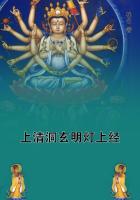Now proportionate return is secured by cross-conjunction. Let A be a builder, B a shoemaker, C a house, D a shoe. The builder, then, must get from the shoemaker the latter's work, and must himself give him in return his own. If, then, first there is proportionate equality of goods, and then reciprocal action takes place, the result we mention will be effected. If not, the bargain is not equal, and does not hold;for there is nothing to prevent the work of the one being better than that of the other; they must therefore be equated. (And this is true of the other arts also; for they would have been destroyed if what the patient suffered had not been just what the agent did, and of the same amount and kind.) For it is not two doctors that associate for exchange, but a doctor and a farmer, or in general people who are different and unequal; but these must be equated. This is why all things that are exchanged must be somehow comparable. It is for this end that money has been introduced, and it becomes in a sense an intermediate; for it measures all things, and therefore the excess and the defect-how many shoes are equal to a house or to a given amount of food. The number of shoes exchanged for a house (or for a given amount of food) must therefore correspond to the ratio of builder to shoemaker. For if this be not so, there will be no exchange and no intercourse. And this proportion will not be effected unless the goods are somehow equal. All goods must therefore be measured by some one thing, as we said before. Now this unit is in truth demand, which holds all things together (for if men did not need one another's goods at all, or did not need them equally, there would be either no exchange or not the same exchange); but money has become by convention a sort of representative of demand; and this is why it has the name 'money' (nomisma)-because it exists not by nature but by law (nomos) and it is in our power to change it and make it useless. There will, then, be reciprocity when the terms have been equated so that as farmer is to shoemaker, the amount of the shoemaker's work is to that of the farmer's work for which it exchanges. But we must not bring them into a figure of proportion when they have already exchanged (otherwise one extreme will have both excesses), but when they still have their own goods. Thus they are equals and associates just because this equality can be effected in their case. Let A be a farmer, C food, B a shoemaker, D his product equated to C. If it had not been possible for reciprocity to be thus effected, there would have been no association of the parties. That demand holds things together as a single unit is shown by the fact that when men do not need one another, i.e. when neither needs the other or one does not need the other, they do not exchange, as we do when some one wants what one has oneself, e.g. when people permit the exportation of corn in exchange for wine. This equation therefore must be established. And for the future exchange-that if we do not need a thing now we shall have it if ever we do need it-money is as it were our surety; for it must be possible for us to get what we want by bringing the money. Now the same thing happens to money itself as to goods-it is not always worth the same; yet it tends to be steadier. This is why all goods must have a price set on them; for then there will always be exchange, and if so, association of man with man. Money, then, acting as a measure, makes goods commensurate and equates them; for neither would there have been association if there were not exchange, nor exchange if there were not equality, nor equality if there were not commensurability. Now in truth it is impossible that things differing so much should become commensurate, but with reference to demand they may become so sufficiently. There must, then, be a unit, and that fixed by agreement (for which reason it is called money); for it is this that makes all things commensurate, since all things are measured by money. Let Abe a house, B ten minae, C a bed. A is half of B, if the house is worth five minae or equal to them; the bed, C, is a tenth of B; it is plain, then, how many beds are equal to a house, viz. five. That exchange took place thus before there was money is plain; for it makes no difference whether it is five beds that exchange for a house, or the money value of five beds.
We have now defined the unjust and the just. These having been marked off from each other, it is plain that just action is intermediate between acting unjustly and being unjustly treated; for the one is to have too much and the other to have too little.
Justice is a kind of mean, but not in the same way as the other virtues, but because it relates to an intermediate amount, while injustice relates to the extremes. And justice is that in virtue of which the just man is said to be a doer, by choice, of that which is just, and one who will distribute either between himself and another or between two others not so as to give more of what is desirable to himself and less to his neighbour (and conversely with what is harmful), but so as to give what is equal in accordance with proportion; and similarly in distributing between two other persons.
Injustice on the other hand is similarly related to the unjust, which is excess and defect, contrary to proportion, of the useful or hurtful. For which reason injustice is excess and defect, viz. because it is productive of excess and defect-in one's own case excess of what is in its own nature useful and defect of what is hurtful, while in the case of others it is as a whole like what it is in one's own case, but proportion may be violated in either direction. In the unjust act to have too little is to be unjustly treated; to have too much is to act unjustly.
Let this be taken as our account of the nature of justice and injustice, and similarly of the just and the unjust in general.
6















